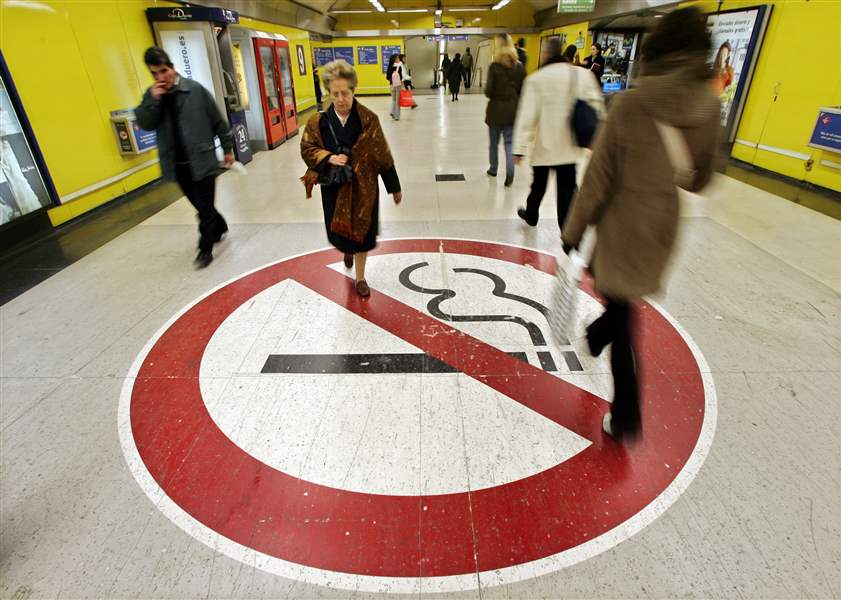
Ohio anti-smoking advocates see chance for higher tax
Say bumping cigarette tax $1 could fill state’s budget gap
4/15/2017
ASSOCIATED PRESS
COLUMBUS — Anti-smoking advocates hope this week’s announcement of an $800 million hole in the state’s next two-year budget may give lawmakers more of an appetite for a hike in the state’s cigarette tax.

Until now, much of the tax talk in the proposed budget awaiting a House vote has been about tax reform, raising some taxes in order to help finance another personal income tax cut.
If anything, the result would have a net tax cut, albeit a small one.
Some elements of Mr. Kasich’s proposed tax reform package were already in trouble with lawmakers — a half-cent hike in the sales tax increase, an expansion of the sales tax base, and an increase in the severance tax on shale oil and natural gas drilling.
But the American Cancer Society, American Lung Association, and others have been lobbying lawmakers for a $1 hike in the per-pack tax on cigarettes — 35 cents more than in Mr. Kasich’s tax proposal.
The General Assembly increased that tax by 35 cents per pack two years ago, taking it to $1.60.
“Our estimate is that increasing the cigarette tax by one dollar would generate $313.08 million in annual revenue while an increase in other tobacco products at the same time would lead to health and economic savings,” said Deanna Henkle, legislative analyst for the American Cancer Society Cancer Action Network.
Mr. Kasich had also proposed extending the cigarette tax rate to an equivalent rate on cigars, smokeless, and other forms of tobacco, to include e-cigarettes.
Advocates would like to see $35 million of any increase put into tobacco prevention and cessation programs each year, but that would still go a long way toward filling that $800 million hole identified in the proposed budget.
Even Mr. Kasich says the idea of a net tax cut is now on shaky ground because of Thursday’s announcement.
Rep. Robert McColley (R., Napoleon), a member of the House Finance Committee that will write the chamber’s first version of the next budget, said he doesn’t believe Thursday’s announcement by the governor and legislative leaders will lead to support of net tax increases.
“My focus is going to be on no tax increase,” he said. “If we have to forego tax cuts in this budget to make sure we’re going to be able to have a good, technically sound budget, so be it. I’m on board for that. I still think that raising taxes, especially those taxes that hurt businesses on the border, is not good policy.”
Even in the context of tax reform with a net decrease as a goal, Mr. McColley has been outspoken against the proposed tobacco tax hike and what the administration has characterized as inflationary increases in beer and wine sales.
His district borders Michigan and Indiana.
“[The cigarette tax] is one of those consumption-based taxes and an easy tax to increase, but the data is pretty clear that border counties are affected the most, particularly border county businesses,” Mr. McColley said.
At $2.25-per-pack, Mr. Kasich’s proposal would give Ohio the highest cigarette tax among its neighbors with the exception of Pennsylvania at $2.60. Michigan is at $2.
Contact Jim Provance at: jprovance@theblade.com or 614-221-0496.